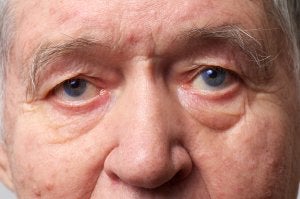 A diagnosis of diabetes might cause some people to consider only the metabolic complications that this disease can cause. However, this condition can impact the cardiovascular system, nervous system, and other aspects of health as well. In fact, eye doctors often see patients suffering from glaucoma, cataracts, or retinopathy who also have diabetes. When these conditions develop as the result of diabetes, eye doctors consider it diabetic eye disease. If you have diabetes, it is important to regularly receive eye care. With the help of an eye doctor in Derry, you can help prevent the many vision-related complications of this disease.
A diagnosis of diabetes might cause some people to consider only the metabolic complications that this disease can cause. However, this condition can impact the cardiovascular system, nervous system, and other aspects of health as well. In fact, eye doctors often see patients suffering from glaucoma, cataracts, or retinopathy who also have diabetes. When these conditions develop as the result of diabetes, eye doctors consider it diabetic eye disease. If you have diabetes, it is important to regularly receive eye care. With the help of an eye doctor in Derry, you can help prevent the many vision-related complications of this disease.
Causes
Diabetes can have a resounding impact on so many aspects of health because of how it affects the blood vessels that feed all cells. Cells rely on blood glucose for energy, and in a healthy person, glucose passes easily from the bloodstream into the cells with the help of insulin. Diabetes disrupts insulin production, making it more difficult for blood glucose to leave the bloodstream. If blood glucose levels get too high, it can affect eye health. The blood vessels in the retina, as well as the lens and retina itself, can experience damage because of unregulated blood glucose levels.
Warning Signs
The symptoms of diabetic eye disease can vary. Vision that becomes blurry may occur due to the formation of cataracts, which cloud the lenses. Hazy eyesight may also develop because of glaucoma, a progressive form of diabetic eye disease. This condition may also produce light halos or eye discomfort. Individuals with diabetic retinopathy may see black spots, or they might experience blurred vision.
Eye Care Options
Once warning signs of glaucoma or diabetic retinopathy become evident, the disease may already be at an advanced stage. For this reason, eye doctors urge individuals with diabetes to make regular eye exams part of their total healthcare regimen. An ophthalmologist can detect changes to the eye well before conditions such as diabetic retinopathy, glaucoma, or cataracts cause a noticeable decline in vision. The sooner an issue is found, the more quickly that eye treatment can be given to correct or manage the condition. Because all of these vision problems can eventually lead to blindness, consistent eye care is vital to lasting eye health.

